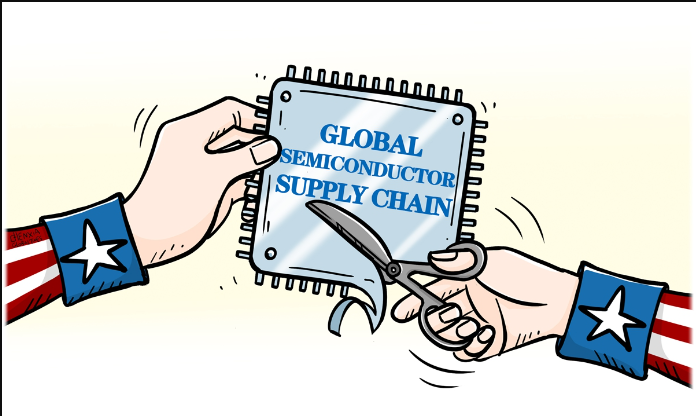In the ever-changing world of technology and retai...
news-extra-space

 However, the semiconductor supply chain is intricate and involves everything from packaging to production and the equipment needed to execute those things.
For instance, the only company in the world capable of creating the extremely complicated equipment required to produce the most cutting-edge circuits is ASML, situated in the Netherlands.
Despite being strong in several market segments, the United States no longer leads in manufacturing. The production of the most cutting-edge semiconductors has mostly been dominated by Samsung and TSMC for the past 15 years or so. The biggest chipmaker in the US, Intel, lagged far behind.
“What has happened is there are many companies spread across the world doing a small part of it, which means there’s a geopolitical angle to it, right? What if one company doesn’t supply the things that you need? What if, you know, one of the countries sort of puts things about espionage through chips? So those things make it a geopolitical tool,” Kotasthane said.
“The other geopolitical significance is just related to Taiwan’s central role in the semiconductor supply chain. And because China-Taiwan tensions have risen, there is a fear that, you know, since a lot of manufacturing happens in Taiwan, what happens if China were to occupy or even just that there are tensions between the two countries?” Kotasthane said.
However, the semiconductor supply chain is intricate and involves everything from packaging to production and the equipment needed to execute those things.
For instance, the only company in the world capable of creating the extremely complicated equipment required to produce the most cutting-edge circuits is ASML, situated in the Netherlands.
Despite being strong in several market segments, the United States no longer leads in manufacturing. The production of the most cutting-edge semiconductors has mostly been dominated by Samsung and TSMC for the past 15 years or so. The biggest chipmaker in the US, Intel, lagged far behind.
“What has happened is there are many companies spread across the world doing a small part of it, which means there’s a geopolitical angle to it, right? What if one company doesn’t supply the things that you need? What if, you know, one of the countries sort of puts things about espionage through chips? So those things make it a geopolitical tool,” Kotasthane said.
“The other geopolitical significance is just related to Taiwan’s central role in the semiconductor supply chain. And because China-Taiwan tensions have risen, there is a fear that, you know, since a lot of manufacturing happens in Taiwan, what happens if China were to occupy or even just that there are tensions between the two countries?” Kotasthane said.
Leave a Reply






